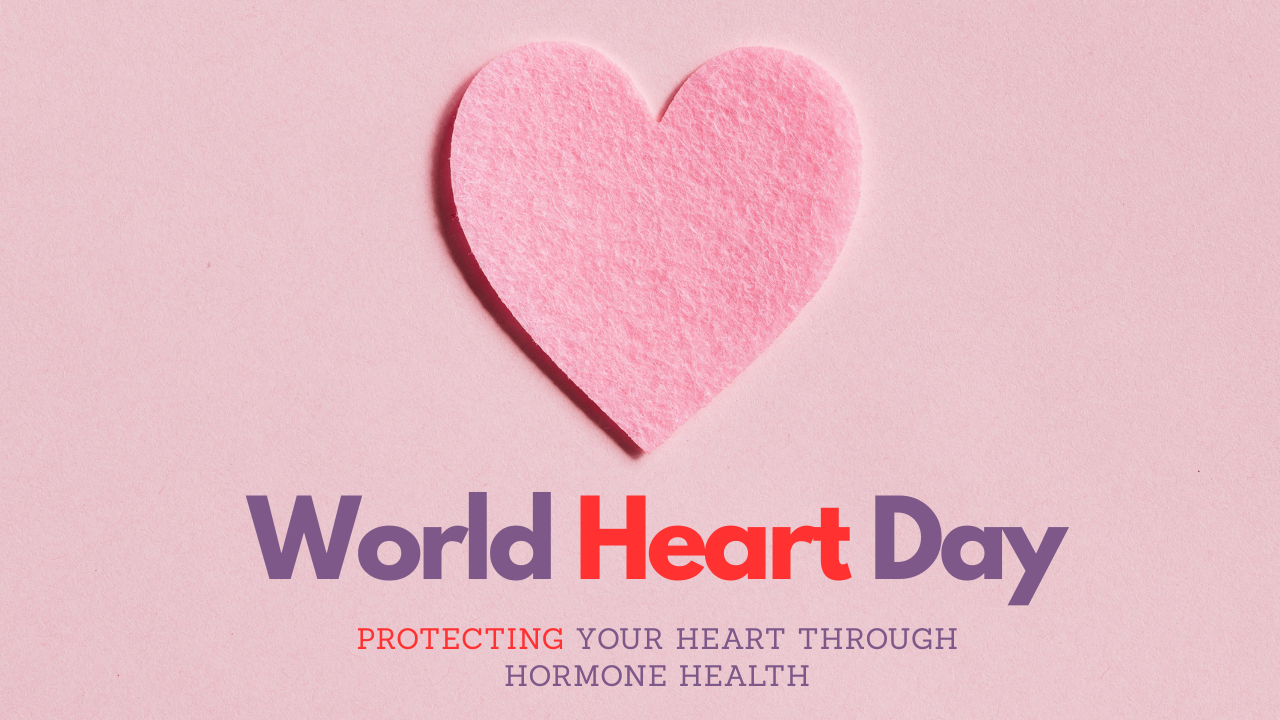World Heart Day: Protecting Your Heart Through Hormone Health
Sep 29, 2025
Every year, World Heart Day reminds us to take stock of our cardiovascular health. For women over 40, this conversation is more important than ever—because heart health isn’t just about diet and exercise, it’s also deeply connected to your hormones.
As estrogen and other key hormones shift during perimenopause and menopause, the risk of cardiovascular issues increases. But here’s the good news: with the right knowledge and strategies, you can protect your heart and thrive.
Hormones and Your Heart: What’s the Connection?
- Estrogen’s protective role
Estrogen helps keep blood vessels flexible, supports healthy cholesterol, and reduces inflammation. When levels decline in midlife, arteries can stiffen, and cholesterol balance may shift, raising heart disease risk. - Cortisol and stress
Chronic stress drives up cortisol, which increases blood pressure and can trigger inflammation—both major risk factors for heart disease. - Insulin resistance
Hormonal changes can affect how your body processes glucose, leading to insulin resistance. This is linked to weight gain around the belly and a higher chance of metabolic syndrome. - Thyroid hormones
An underactive thyroid (more common in women 40+) can slow heart rate, increase cholesterol, and affect circulation.
Science-Backed Ways to Support Heart & Hormone Health
- Strength training and movement
Regular exercise not only strengthens your heart but also helps regulate insulin and cortisol. Aim for a mix of cardio, resistance training, and yoga or stretching for balance. - A heart-healthy plate
Focus on whole foods: lean protein, plenty of colorful vegetables, omega-3-rich fish, nuts, and seeds. Limit refined carbs and processed sugars, which spike insulin and stress your heart. - Stress reset strategies
Meditation, journaling, deep breathing, or even a short walk can calm cortisol levels and protect your cardiovascular system. - Prioritize sleep
Poor sleep disrupts cortisol, insulin, and appetite hormones, creating a domino effect on heart health. Aim for 7–9 hours. - Check your numbers
Regular screenings for blood pressure, cholesterol, thyroid, and glucose levels help catch imbalances early.
The Bigger Picture
Heart disease remains the leading cause of death for women globally—but it’s not inevitable. By tuning into your hormone health, you can take proactive steps that make a real difference.
This World Heart Day, reflect on the small, consistent actions you can take—lifting weights, eating well, managing stress, and listening to your body. Your hormones and your heart are connected, and when you support one, you strengthen the other.
Your heart deserves the same love you give to everyone else. Protect it, nurture it, and let it carry you powerfully through midlife and beyond.
Stay connected with news and updates.
Join our mailing list to receive the latest news and updates from our team.
Don't worry, your information will not be shared.
We hate SPAM. We will never sell your information, for any reason.



